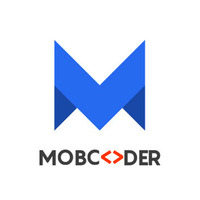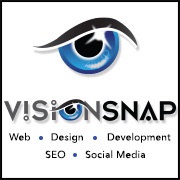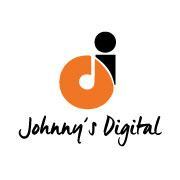
There are 18 Companies in Seattle
that provide Angular Development Services!
Seattle tech industry registers a strong growth of tech job offers. On average in 2020 more than 900 jobs/month are offered to professionals in the IT industry in different subsectors. This means that after the healthcare industry, tech opportunities are the second-fastest-growing economic branch in the city.
Discover Top IT Companies in Seattle specialized in Angular and other related services. Find the best IT service providers for your projects.
Angular (formerly AngularJS) is a popular open-source web application framework maintained by Google and a community of developers. It's used for building dynamic, single-page web applications (SPAs) and web-based applications in general. Angular provides a structured and organized way to create complex web applications by extending HTML with additional features and enabling the development of interactive, responsive, and maintainable front-end web interfaces.
Handpicked companies • No obligation to hire • 100% risk-free
Featured Companies in Seattle
This month, the following Angular Development companies managed to provide an outstanding service and support. It's worth taking a look.

TechGropse Pvt. Ltd. Verified Company
Seattle, United States Head office in: United States
Techgropse is a leading Mobile App and Web Development Company, dedicated to turning innovative ideas into remarkable digital solutions. 500+ Clients
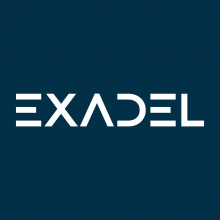
Seattle, United States Head office in: United States
Exadel is a global software consulting & development company that partners with organizations to help them become digital leaders in their industries.

Seattle, United States Head office in: Canada
No Bull$#!t. Just Results. We specialize in web & app development, IoT, and UI/UX design.
Explore Top Angular Development Companies in Seattle

CREST INFOSYSTEMS PVT LTD Verified Company
Seattle, United States Head office in: India
We are a trusted IT company for software development and mobile and Web application development services globally.

Seattle, United States Head office in: United States
High-voltage app code since 2010 ⚡️
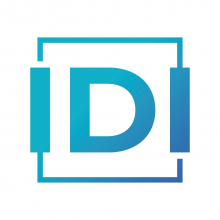
iDigitalise - Digital Marketing Agency Verified Company
Seattle, United States Head office in: United States
Digital Marketing and Technology Firm
Indeema Software - Your IoT Partner.
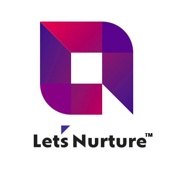
Seattle, United States Head office in: United States
‘Nurturance.’ The word itself depicts growth. Nurturing daily lives of more than 500 + clients + Millions of users Worldwide since the last decade. Ou...
Services:

Seattle, United States Head office in: United States
Mobile & Web Apps Development Company
Mobcoder is a global technology company specializing in AI development and innovative solutions. Since 2014, we've launched over 300 apps.
TECLA is a staff augmentation company with offices in Seattle, Washington and South America. We partner with clients who are looking to bring on remot...
VisionSnap, Inc. was established in 1999 on the basis of developing exceptionally designed, creative web sites for individuals and corporations. We se...
Services:
Black Antelope is a design-focused and engineering-focused digital creative agency. We started the agency in 2009 in the San Francisco Bay Area, and e...
Services:
Velocity Partners is a nearshore software development company that strategically aligns with companies to deliver results better, faster and more cost...

Seattle, United States Head office in: United States
Hoodies is a team of web engineers that helps early stage startups and agencies to rapidly build remarkable technology. We do agile development from r...
Digital Marketing Agency In Seattle
Services:
Johnny’s Digital is a digital marketing company
Filter Angular Development Companies in Cities near Seattle
Dive deeper and find the company you need close to you or, from a specific city you prefer. Some of the best companies come from smaller places
Find more Angular Development companies around the world
TechBehemoths is the world's most advanced and user-friendly platform to match IT Companies with real clients without hustle.
Tech Industry in Seattle: General Overview
Seattle tech industry registers a strong growth of tech job offers. On average in 2020 more than 900 jobs/month are offered to professionals in the IT industry in different subsectors. This means that after the healthcare industry, tech opportunities are the second-fastest-growing economic branch in the city.
The annual salary of a tech worker in Seattle was estimated in 2019 to about $279K USD, which is double of any other sector area according to figures from the US Bureau of Labor Statistics.
On the other hand, the city is overwhelmed with IT companies and faces two challenges that have a huge role in the industry’s future
-
First, Seattle has a shortage of skilled professionals in the IT industry and the local authorities try to deal with this issue by promoting and facilitating access to women in the IT industry.
-
The second issue is gender balance where female workers have a lower priority to IT companies according to Bizjournals.
These two issues are actually a solution to each other and if implemented correctly could boost Seattle's tech capacities and improve the city’s position in the gender balance index.
The number of IT companies from Seattle has also known a strong growth in the last years, and grows by 18% annually, reaching in 2020 the number of 19,000+ which is a good industry indicator, showing the capacities and the capabilities of Seattle to move forward and take the regional leading position.
For companies that intend to cooperate with tech & web agencies, Seattle is a good place to find a fit partner in digital projects, no matter the subsector. The 19000+ IT companies provide an entire range of services and enjoy a consolidated reputation based on numerous works for both SMEs and commercial giants.
What is Angular and what are its benefits for your projects?
Angular (formerly AngularJS) is a popular open-source web application framework maintained by Google and a community of developers. It's used for building dynamic, single-page web applications (SPAs) and web-based applications in general. Angular provides a structured and organized way to create complex web applications by extending HTML with additional features and enabling the development of interactive, responsive, and maintainable front-end web interfaces. Here are some key aspects and concepts of Angular:
-
Component-Based Architecture
-
Templates
-
Directives
-
Dependency Injection
-
Services
-
Routing
-
Observable and RxJS
-
Modules
-
Testing
-
Cross-Platform
Angular's structured approach, strong tooling, and vibrant ecosystem of libraries and extensions make it a powerful framework for building modern web applications. It is particularly well-suited for large and complex projects where maintainability and scalability are crucial.
Companies may choose Angular over other front-end frameworks for their projects for a variety of reasons, depending on their specific needs and priorities.
-
Google Backing: Angular is developed and maintained by Google. This association often gives companies confidence in its long-term support, stability, and continuous improvement. Google's involvement is seen as a sign of reliability and commitment to the framework.
-
Mature and Established: Angular has been around for a while and has a strong track record of being used successfully in large-scale enterprise projects. It has a well-defined architecture and best practices, which can be beneficial for maintaining and scaling applications over time.
-
TypeScript Support: Angular is built with TypeScript, a statically-typed superset of JavaScript. TypeScript provides better tooling, code maintainability, and catches errors at compile time, which can reduce bugs and enhance code quality, making it attractive to companies that prioritize robust code.
-
Full-Featured Framework: Angular provides a comprehensive set of tools, libraries, and features out of the box, including routing, form handling, HTTP client, and more. This can save development time and effort compared to integrating multiple third-party libraries in other frameworks.
-
Two-Way Data Binding: Angular offers powerful two-way data binding, which allows for automatic synchronization between the data model and the view. This feature can make it easier to develop interactive and responsive user interfaces.
-
Large and Active Community: Angular has a large and active community of developers and a wealth of resources, including documentation, tutorials, and third-party libraries. This can be beneficial for finding solutions to common problems and getting support when needed.
-
Enterprise-Ready: Angular provides features like dependency injection, modularity through modules, and a strong emphasis on testability. These characteristics are well-suited for building robust and maintainable enterprise-level applications.
-
Strict Coding Standards: Angular enforces a set of coding standards and best practices, which can lead to more consistent and readable code. This can be important for companies with multiple developers working on the same codebase.
-
Cross-Platform Development: Angular can be used for building both web and mobile applications. Companies looking to develop applications for multiple platforms may choose Angular for its ability to share code between web and mobile apps using technologies like NativeScript or Ionic.
-
Integration with Backend Technologies: Angular can easily integrate with various backend technologies and APIs. This makes it suitable for projects where the front end needs to communicate with different types of server-side applications.
-
Security Features: Angular provides built-in security mechanisms to help prevent common web vulnerabilities like Cross-Site Scripting (XSS) and Cross-Site Request Forgery (CSRF). This can be crucial for projects with high security requirements.
-
Ecosystem and Tooling: Angular has a rich ecosystem of tools, extensions, and IDE support, including Angular CLI for project setup and management. This can streamline development workflows and improve productivity.
Ultimately, the choice of Angular or any other framework depends on the specific project requirements, the development team's expertise, and the company's long-term goals. Companies evaluate various factors to determine which framework aligns best with their needs, resources, and priorities.


